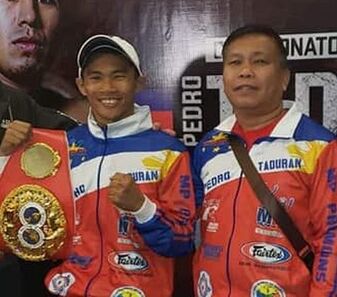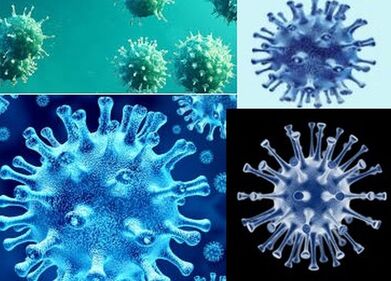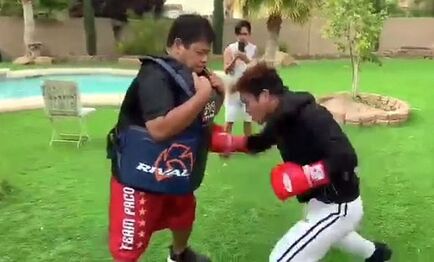|
While it’s great to kick back and enjoy a drink or two now and again, people consume on average 70% more alcohol today than we did 30 years ago. It may feel ok to indulge every once in a while, but when you think that one sip of alcohol can stay in your system for up to two hours, this could affect your body composition, training, and even recovery. Meanwhile, hit the alcohol hard and you could even end up hospitalised with alcohol poisoning. To avoid this and make sure that you maintain the level of fitness you've worked so hard to achieve, boxers should understand the effects of alcohol on the body.
Alcohol increase caloric intake While you may have ditched the carbs, sugar and fat out of your diet, all your hard work could be undone by the calories hiding in your alcoholic drinks. Alcoholic drinks are packed with empty calories and as your body cannot store alcohol, it will try to get rid of it as soon as possible. This interrupts your body's normal processes of absorbing nutrients and burning fats. What this means in reality is that one large glass of wine is equivalent to a serving of ice cream, while one pint of larger is the same as a large slice of pizza. This may not seem so bad, but if you end up drinking six pints of beer then you will be in effect consuming more than 1000 calories. Effect of alcohol on our muscles Look at most top boxer’s pre-fight routine and you will likely see no alcohol a few months ahead of their big fight and it’s easy to see why. Training and alcohol don’t mix, especially when you want to build muscle. Studies have found a direct link between alcohol consumption and muscle hypertrophy. Alcohol can affect the hormonal and inflammatory responses to physical exertion, making it difficult for the body to be able to successfully repair damaged proteins and build new ones, essential for muscle building. Be aware of how much you're drinking For some people, there is no such thing as just one glass or two. If you drink, then you will drink a lot. But this doesn’t need to be the case, alcohol won’t taste any better the more you have and you don’t need to finish the whole bottle every time. While some drinks are lower in calories and alcohol content than others it can still be hard to keep track of how much you are drinking. While a bottle of wine can feel like a commitment, canned wine offers built-in portion control. One standard wine bottle holds around 5-ounce glasses of wine, while a can of wine offers just one or two healthy-sized servings. This way, you can enjoy a drink while sticking to the optimal amount for health benefits. How alcohol affects your mental state Everyone knows that all too familiar feeling of waking up after a night out drinking. The sore head, churning stomach and feeling tired and sluggish. You are less likely to be able to train as hard as usual or even train at all. You are also more likely to reach for heavy, calorie-packed foods rather than healthier alternatives. Alcohol can also act as a depressant and leave you feeling low and with a negative mindset and certainly not in the right frame of mind before a big match. Training and recovery As a boxer, alcohol can have a significant impact on both your training and recovery. When it comes to your training, alcohol consumption can reduce your reaction times as for 24 hours after drinking, alcohol can continue to affect the brain’s ability to process information quickly. For a whole day after drinking, both your reaction times will be slower and your performance will be affected. Not a good combination when you need to avoid your opponent's punches. Alcohol can also lead to increased cramps, strains and muscle pulls. Your muscles will also take longer to recover, along with your force and strength. Boxing is not all about skill, technique and physical strength. It also takes mental strength and discipline to be a successful boxer. Avoiding things like alcohol, or certainly drinking in moderation and not before a match will help you to be at your best and recover quickly for your next bout.
0 Comments
 By Rene Bonsubre,Jr IBF world minimumweight champion Pedro Taduran (14-2-1,11KO’s) is one of the many Filipino boxers waiting for the sporting world to resume activities. With almost the entire planet coming to a virtual standstill due to the novel coronavirus pandemic, athletes are forced to find ways to stay active. Taduran, who is based in the Hardstone Monis Boxing Gym in Valenzuela City,Metro Manila,is currently in Bicol. With majority of the Philippines’ Covid-19 cases in the National Capital Region, Taduran is in a region more than 400 kilometers from Manila. “I am just jogging right now to stay in shape.”, Taduran told this writer in a short chat. “I have not received any messages about any offers for my next title defense.” Last February, the 23 year old Taduran retained his title after a four round technical draw against Mexican challenger Daniel Valladares. This was the southpaw Taduran’s first defense and he did it on the road in Guadalupe,Mexico. His manager,Art Monis also had a brief chat online with this writer. He is in La Union,another province in the Philippines. “I am fine. But this is a difficult time for the boxers. They don’t have income because there are no fights. It is hard for their day to day spending. Many boxers went home to their families in their provinces. Some are here in La Union. Taduran got stuck in Bicol,the lockdown was imposed. There was another offer in Mexico,possibly June but covid-19 stopped everything.”, Monis said. Monis also mentioned his other note-worthy boxer,Michael Dasmariñas,who is with him in La Union. Dasmariñas is the current number one bantamwieght contender of the IBF but his shot at Naoya Inoue will have to wait pending Inoue's unification bout against John Riel Casimero. Taduran won the vacant IBF title against countryman Samuel Salva last September. Salva knocked down Taduran in the first but non-stop pressure from Taduran made Salva wilt and decide not to answer the bell for the fifth round. Taduran also has message for his countrymen enduring life in community quarantine: Stay safe.This will all pass. Once this will end, we will enjoy boxing again. Photo-Pedro Taduran and Art Monis Athletes from all sports take supplements to boost everything from endurance to vitality, but for boxers, supplements that have the potential to guard the brain against the effect of repetitive concussive and subconcussive impact can be vital. A 2018 study published in the journal Sports Medicine found that, unlike medication, nutritional supplements such as creatine and Omega-3 essential fatty acids can boost brain health in multiple ways. If you are a boxer wishing to obtain this type of protection, a consultation with your doctor is always key to ensure you are taking the right supplements in the right amount. It may be particularly beneficial to discuss the following supplements with them, since a small group has been found to help stave off the effects of impacts to the head.
Omega-3 Essential Fatty Acids This supplement, also sourced from foods such as fatty fish, walnuts, and extra-virgin olive oil, has been found in various studies to maintain the structure and function of the brain. Since it possesses anti-inflammatory effects, it is often used as a supplement to protect the brain and preserve memory. Omega-3s (EFAs) can also play an important role in preserving boxers’ brain health, In the Sports Medicine study mentioned above, scientists pointed to the loss of key Omega-3 fatty acids following injury. In lab studies, having low levels of these crucial acids is linked to greater cell death, slower recovery of motor function, cognitive deficits, and greater anxiety. By contrast, Omega-3 supplementation has been found to enhance resilience to traumatic brain injury, making it an important ally for boxers to have around. Curcumin and Cognitive Functioning In the same study, lab tests showed that mice supplemented with curcumin performed better at post-traumatic brain injury maze tests than control mice. Another study showed that the protective benefits of both Omega-3 fatty acids and curcumin could be enhanced by combining both. In the study, this combination of nutrients and nutraceuticals resulted in higher levels of DHA (a long-chain Omega-3 fatty acids). DHA is not only linked to better brain health, but also to improved heart health and vision, and a reduction in inflammation. Many people enjoy curcumin as a fragrant spice to add to their meal. This ingredient works wonders in curry, soup, and stew dishes. Phosphatidylserine for Brain Cell Protection It is vital for boxers to take a proactive stance when it comes to their brain health, since having brain injuries increases the risk of dementia and other long-term mental concerns. As stated in the book Nature's Brain Booster, having just one concussion injury can increase the risk of dementia fourfold. Moreover, in a review on repetitive brain trauma published in the journal Brain Pathology, one small study in which phosphatidylserine was combined with other supplements (including ginkgo to enhance blood flow and Omega-3 for memory and mood), there was better circulation in the brain. Creatine Against Traumatic Injury A study published in the Wiley Online Library showed that creatine — one of the most relied upon supplements by athletes of all types — provides significant neuroprotection after traumatic brain injury. Lab tests showed that this compound could reduce damage by around 36% in mice and 50% in rats. The mitochondrial (energy powerhouse) membrane of cells were increased and harmful oxygen species were reduced. The scientists concluded that the supplement may be useful against both acute and delayed brain issues following an injury. Any boxer wishing to protect their brain against the effects of impacts and injury should see their doctor first to obtain whether or not they can obtain the nutrients they need through a healthy diet. Studies indicate that some nutrients and nutraceuticals can be of aid in preserving brain health and memory following head injuries. These include Omega-3 essential fatty acids, phosphatidylserine, curcumin, and creatine. Some studies suggest, in fact, that combining Omega-3s and curcumin could enhance the ‘power’ of both. Many of these nutrients and nutraceuticals can be sourced naturally from food. Salmon and other fatty fish, for instance, are optimal sources of Omega-3s, as are walnuts and extra-virgin olive oil. Testing should indicate the extent to which your doctor may deem you a good candidate for supplementation.  By Rene Bonsubre,Jr The sport of boxing has been on the canvas for weeks as the dreaded novel coronavirus continues to spread in 210 countries and territories. Major fight cards are postponed as the host countries struggle to contain the deadly virus. While fight fans are reminiscing about classic fights at home, the powers that be are discussing the various scenarios where boxing can make a comeback. That will depend first of all if the efforts to “flatten the curve” will actually succeed. It is not just sports, but entire governments want to reopen and go back to the way things were. But every day, when we turn on the news, we find that we are still far from getting back to normal. The President of the WBO, Paco Valcarcel, has said that the WBO has withdrawn sanctioning of bouts through the month of June as well as freezing their rankings. A couple of weeks ago, WBC President Mauricio Sulaiman said that for fights to resume, even behind closed doors, strict protocols should be in place for the fighters and their teams which include “having fighters and their teams isolated for at least a month in the areas where the function would take place and during that period, they would have to do the laboratory medical tests to make sure everyone is healthy." The website of the WBA has an article stating that its president, Gilberto Jesus Mendoza and the members of the directorate met virtually to discuss having boxing events behind closed doors. Last April 17,the IBF lost Board member and former referee Eddie Cotton, who passed away and was diagnosed with COVID-19 at the hospital. A couple of weeks ago, Top Rank’s Bob Arum said he was in no rush to get fighters back into the ring. One of the high profile bouts postponed by the Covid-19 pandemic is the bantamweight unification between John Riel Casimero and Naoya Inoue. Arum recently said that the fight is unfortunately now in the backburner. Matchroom Sports’s Eddie Hearn has also been talking about fights being held behind closed doors and smaller venues. The low income boxers will be severely affected by the pandemic. They may wind up not having any fights and purses for several months, even until the end of the year. So how can boxing make a comeback? These are the few scenarios that crossed my mind: Boxers will obviously need to be tested negative for the novel coronavirus before they are cleared to fight. Then we will have to test the cornermen and the boxing officials. I would not be surprised if even the ring girls need to be cleared as well. Then we will have to screen the spectators. Temperature checks as well as having them seated at least six feet apart. Masks would have to be required for everyone in the venue who is not fighting. Fewer spectators would mean less ticket sales and could very well mean that plans for big fights could be put on hold. This will still be a worrisome scenario without a vaccine or cure. What are the medical scientists doing in the race for a cure? An article posted on the BBC website stated that more than 150 different drugs are being researched around the world. Most are already existing drugs that are being tested against the virus. Many research centers around the world are attempting to use the blood of patients who recovered from the virus as a treatment. The results of the various drug trials will be available in the next few months. Human trials for vaccines have started last month. Usually, it takes years to develop a vaccine but desperate times call for desperate measures and the race for an effective vaccine against Covid-19 has been fast-tracked. The most optimistic experts say it will be available by mid-2021. There are countries like Sweden that are using a herd immunity strategy, Herd immunity happens when enough people have immunity to a disease, in this case through exposure and natural immunity, to make it difficult for the virus to infect new victims. The situation remains an uphill battle. Any of the major sports will be different without the roar of the crowd. Not just from a profit standpoint but also if you view it from the drama or lack of it when no cheers can be heard when a boxer gets knocked down. The bottom line is the safety of the participants. No one will be taking a risk of staging an event where people could catch a potentially fatal illness. For that to happen, a cure and a vaccine are needed to be widely available. But fans should not lose hope. Medical science will find a way to save not just boxing but the entire planet.  By Samson Iu, Professional Boxing Commission Executive Director Let’s talk about what is a professional boxing license and why all commissions should enforce the licensing system. Licensing for professional boxing is very important, in order to maintain the health of the industry. Commissions will issue licenses for different roles in the industry, surely for boxers, as well as trainers, managers, promoters and boxing officials. I will give a brief introduction of key roles, but before that I’m giving a general idea why a boxing license is important, Besides having a good control of the industry within an area or country, boxing licenses also act as an important reference when a boxer is fighting overseas, not only for boxers, but also for boxing officials and trainers, in order to make sure the safety of the fight and fairness of the fight. Boxer license Boxer’s health is always the main concern in the sport, in order to keep boxer safe as much as possible, issuing license is require by a. Sparring test in some countries and written test to make sure of a boxer’s quality and understanding of boxing. b. Yearly CT scan and blood test before renewing license. c. To control the suspension period before boxers could fight again as a safety measure. Trainer / Manager License Trainers and managers spend most of their time with their boxer who is fighting in the ring. Therefore issuing them a license would be required by: a. Written exam to make sure trainer understand how to take care of their boxers. b. Commission could review bout contract to make sure terms are fair for both parties. Officials Boxing Officials is another key role to make sure safety of a bout, in order to do so, providing license to all officials will help: a. Making sure officials will attend require seminar / training on new rules / new recommendation in the sport. b. For overseas commission as a reference when overseas official is required. All items mentioned above are a standard protocol for mature boxing countries like Japan, Philippines, Europe and the US. However, this is still a starting point for the new professional boxing developing countries like China, India, etc. But since 2019, more and more countries in Asia are following this protocol to avoid conflict with commissions and as well as to avoid unnecessary injuries. Photo – the author during the WBO Convention. Samson Iu is the executive director of the Professional Boxing Commission. The boxing commission originated in Macao six years ago and has since officiated and sanctioned bouts in mainland China, Hong Kong, India, Sri Lanka, New Zealand, UAE, Vietnam and Cambodia. By Rene Bonsubre,Jr
The worldwide spread of COVID-19 has left the entire sporting world on the canvas. Professional boxing’s big fights are rescheduled and the Tokyo Olympics – with boxing as one of the events - moved to next year. One of the high profile postponements is the highly anticipated bantamweight unification match between WBO champion John Riel Casimero and Naoya Inoue, who has the WBA and IBF titles. Casimero (29-4,20KO’s) has been training in the U.S. since February for what would have been a Las Vegas megafight on April 25. But when the coronavirus started to spread in the U.S, the fight had to be put on hold. Casimero’s Miami training camp had strength and conditioning guru Memo Heredia and Cuban coach Pedro Roque. Inoue was reported to have tapped popular Filipino contenders Albert Pagara and KJ Cataraja as his sparmates. Inoue (19-0,16KO’s) was reported last month to be the betting favorite at 7-2. Team Casimero transferred their training camp to Las Vegas and he remains focused despite all the distractions. With community quarantine and social distancing now becoming the new normal, Casimero is training in relative isolation in a house in Vegas with new equipment bought by Sean Gibbons, who heads MP Promotions. “I’m okay, Sir Sean bought the equipment we need to continue training,” Casimero told this writer in a short chat. “I am still focused. They told me the fight will happen in June or July, so I always ready.” “Las Vegas doesn’t have many cases, so it’s ok.” Casimero stated, “I will just continue to train. My conditioning is fine. So, when they call me, I am ready.” Casimero has been very vocal on social media about his chances and even posted on his new facebook page that he is an underrated boxer who will soon become unified champion. Inoue of course, will have something to say about that. It seems the fighter who will maintain his conditioning and focus during the rescheduling period will have an advantage. Photo - Casimero with trainer Nonoy Neri- from video courtesy of John Riel Casimero |
Guests!These articles are submitted by guest writers and sites. They aren't submitted by the usual folk behind Asian Boxing and don't fall in line with our editorial stance, giving a fresh view on various boxing issues from the Asian boxing scene. Archives
August 2021
Categories
All
|

 RSS Feed
RSS Feed
